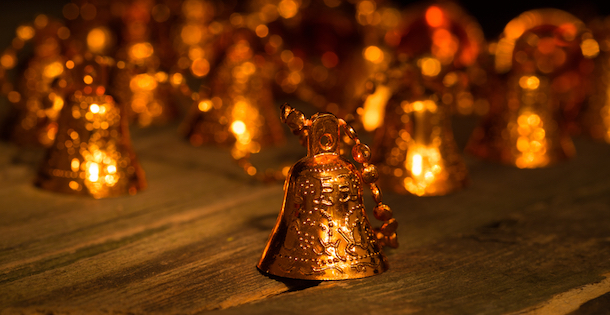The bank’s letters had taken a threatening tone. “Contact us to begin payment of your student loans, or we will pursue legal remedy through the courts.”
Margot slumped onto her threadbare couch. She ruffled her short brown hair. To avoid plunging her into bankruptcy, Wells Fargo demanded $1,000. The corners of Margot’s mouth turned down, and tears welled. Her grandfather would’ve been crestfallen by her financial plight. Margo’s single mother had disappeared, abandoning Margot into his care. Grandpa beamed as he told friends at the senior center that Margot was the first in their family to attend college. He’d passed before seeing her graduate from the University of Texas.
Where could she possibly get $1,000? Her resume had been posted on Monster and Career Builder for months. No job, not even an interview invitation. The world demonstrated little demand for an English major who could quote Chaucer. The local MacDonald’s displayed a “Staff Wanted” sign for slinging hamburgers. How could she serve Big Macs to her friends when they’d attended college together? There had to be another way.
Margot’s gaze went to the television. A little diversion was needed. She pressed the remote. Sound rose, but the cathode ray tube remained gray. On the blink. What next? Margot sighed. She supposed that electronic problems didn’t solve themselves. At Best Buy, she’d strolled past dozens of LCD TVs for sale. Spectacular resolution and clarity. As Chaucer wrote, We love newfangledness. Forbid us something, and that’s the thing we desire. Margot shook her head. Her friend Jessica had purchased a 60-inch Samsung. Jessica majored in computer science. After graduation, she was awash with job offers. Jessica’s signing bonus covered the TV’s purchase.
Margot’s eyes lighted on a ship’s bell pushed into a corner of her studio apartment. She’d grown up with the clumsy knickknack used by her grandfather as a paper weight for his magazine collection. The relic was the single piece of inheritance from Grandpa, inscribed with the marking VOC, Vereenigde Oost-Indische Compagnie. The Dutch East India Company was the incredibly wealthy Netherlands spice and silk trading empire that had flourished in Asia for 200 years. Her grandfather spent his career in the Merchant Marines. In his will, he alluded to the bell’s rarity and that it had been passed down through generations of sailors in Margot’s family. Grandpa’s bequest advised that the piece would increase in value and that Margot shouldn’t sell it, “unless you’re down to your last penny.”
Margot bit her lip as she stared at the bell. She bent to examine the piece. Sea corrosion on the once-sunken artifact had been slight. Clearly visible was an embossed coat of arms flanked by clawing lions with the VOC marking. What could something like this be worth? She had to find out.
Margot visited the University of Texas library and researched the piece. She found abstracts, but no value was indicated. Where does one sell a few hundred-year-old ship’s bell? Then, the light bulb lit. The bell had some heft, but Margot lugged the piece to the Pawn Your Mother shop not far from the University on Guadalupe. The owner was bulky with a gray-speckled goatee. His gruff demeanor reflected the dollars-and-cents calculation of a million sad customer stories. Margot plopped the bell onto the counter. The owner’s eyebrows rose.
Margo said, “This is a very rare Dutch East India Company ship’s bell. I’m selling. What will you give me for it?”
The owner smirked. “Not much demand for a ship’s bell in Austin. How much do you want?”
Margot said, “Twenty thousand dollars.”
The owner stifled a laugh. “Not going to happen.”
“How much will you give me?”
The pawn dealer puffed out a breath. “A hundred bucks. Maybe the metal is worth that much in scrap.”
Margot blanched. “For Grandfather’s bell? Scrap? Outrageous.”
The tinkle of the front door’s bell signaled that someone else had entered. An older gentleman in a tweed jacket with a still-smoldering pipe began to browse. He spotted Margot’s bell on the counter and sprang forward.
“Oh my goodness. This is wonderful. May I touch the piece?”
Margot nodded.
The professor pointed with his pipe stem. “This is a wonderful example of a Dutch East India Company ship’s bell. Seventeenth century. Surprisingly good condition. Not encrusted with marine corrosion. I suspect that the ship sunk near shore, and the bell was salvaged soon after the wreck went down. Amazing. This would fetch at least $10,000 at auction.”
Margot brightened. “Really?”
The pawn shop owner’s shoulders sagged.
Margot said, “Did you hear that? Ten thousand.”
The owner shrugged. “Even if you interested Sotheby’s in a single piece, you’d need the perfect buyer to bid full price, and the auction house would take half.”
Margot turned toward the professor.
He tilted his head. “Perhaps that’s correct.”
Margot asked the owner. “How much will you give me?”
The man pulled at his goatee. “Five hundred.”
“No way.” Margot grasped the bell.
The pawn shop owner said, “You’re living in a dream world.”
Margot began to leave.
The pawn shop owner raised his palms. “Okay. One thousand. That’s my final offer.”
Margot paused. “A thousand dollars? Cash? Today?”
The man nodded. “Yes.”
“You have a deal.”
The professor waited while Margot counted the money. He walked her to the street. He said, “I detected that you had a special need for $1,000?”
Margot smiled. “Absolutely. I’m buying a flat-screen TV.”
Become a Saturday Evening Post member and enjoy unlimited access. Subscribe now



